- Discover Episcopal
- Admission
- Our Program
- Athletics
- Arts
- Spirituality
- Student Life
- Support Episcopal
- Alumni
- Parent Support
- Knightly News
- Contact Us
- Calendar
- School Store
- Lunch Menu
- Summer Camps
Welcome to Early Childhood
I am pleased to welcome you to Episcopal’s Lower School, a nurturing, safe, and joyful community where students in PreK-3 through grade 5 spend each day learning, growing, and taking good care of each other.
Our experienced and highly trained faculty understand the academic and social-emotional needs of children. Low student-teacher ratios enable us to personalize instruction and support student growth and development. We are dedicated to nurturing and developing the whole child -- spiritually, intellectually, morally, physically, and artistically -- and through this important work, we have created an environment where every child is known, loved, and feels a strong sense of belonging.
In our Early Childhood classrooms, each PreK-3 - kindergarten child is allowed to develop at their own pace. Young children are unique learners who need the opportunity to acquire knowledge in ways that are meaningful to them. No two children will learn the exact same way, and no two children develop at the same rate. Teachers know their students well and differentiate their instruction to meet the children at their current skill level. In the early years, students grow their language and vocabulary, learn valuable critical-thinking and problem-solving skills, and strengthen their fine and gross motor skills in order to prepare for the educational journey that lies ahead.
Beth Gardner
Head of Lower School
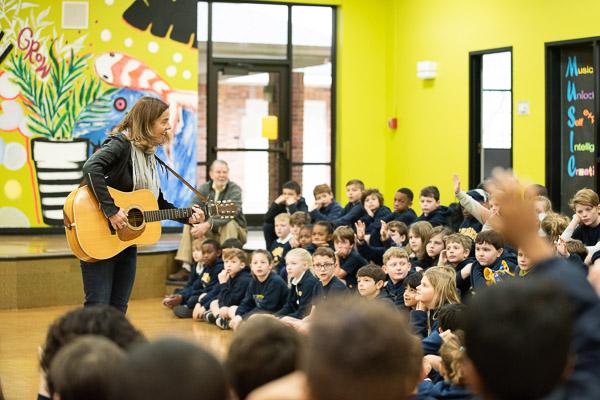
Morning Meeting
Lower School is traditionally a student’s first introduction to what it means to be part of a community, and to support a strong sense of belonging, teachers practice Responsive Classroom routines.
Each day in the Lower School begins with a PreK-4 - grade 5 Morning Meeting in the Greer Center, where students sing and pray together, announcements and birthdays are shared, and our time together is wrapped up with “Make it a great day!” In Lower School classrooms, students are encouraged to contribute to the class and support one another. The lessons and the academic knowledge developed in Lower School prepare students well for their transition to the Middle School years ahead.
Social-Emotional Learning
A child's social and emotional development will benefit the student for the rest of his/her life. Social-emotional learning (SEL) in the Lower School is based on five key competencies of cooperation, assertiveness, responsibility, empathy, and self-control. For Lower School students, social-emotional learning occurs both organically, through play, developing friendships, and group work, as well as strategically through three primary ways.

First, monthly classroom lessons are a dedicated time for the Lower School Counselor to teach students developmentally targeted skills, such as flexible thinking, empathy, and conflict resolution skills. Secondly, Toolbox Tuesday is a part of Morning Meeting once a week in which students can learn calming strategies and “tools” for coping and developing flexible thinking. The third way the key competencies are developed in the Lower School is through individual and group sessions with the Lower School Counselor as needed to discuss student-specific needs. Lower School students learn common language through social-emotional learning which is used by the counselor, teachers, and the Head of Lower School. The consistency reinforces skills learned to all students.

Purposeful Play
Play is the work of children. In our Early Childhood classrooms, learning and play are intertwined as students explore the PreK garden, measure, mix and bake in the Chemistry Kitchen, walk along the Coach Dupe Nature Trail, or tinker with coding robots. The Play Workshop provides students with stimulating opportunities for open-ended play with plenty of space for exploration and discovery.
Mathematics
Teaching early mathematical concepts to young children is essential for acquiring a foundation for future learning. In the Early Childhood classroom, math is often integrated into other content areas like art and science.

Children are introduced to concepts of measurement as they bake a pizza or identify shapes in nature during a walk in the woods. At Episcopal, formal math curriculum is introduced in PreK-4. The Developing Roots curriculum is designed to establish a foundation in Singapore Math with our PreK and kindergarten students through play-based, child-centered experiences grounded in current research in learning and teaching.

Reading Readiness
Teaching children to read begins in two places – with developing concepts about print and with building phonemic awareness.
Young learners exercise their pre-reading skills through read-alouds, retelling stories, and opportunities to explore books. Early childhood students practice letter-sound relationships throughout the day. Once these sounds are mastered, children are ready to put the sounds together to form words. As readers begin to grow, teachers begin small Guided Reading groups in kindergarten. Students learn strategies to help them read new or unfamiliar words, practice comprehension strategies and grow their vocabulary.
Bookmaking and Writing Workshop
In PreK-3 and PreK-4, we call our writing time “Bookmaking,” and we base our teaching around practices from experts in Early Childhood literacy.

At this age, children aren’t typically ready to “write,” but they have lots of stories to tell through pictures and spoken words. As their phonemic awareness begins to grow, children are able to write the letters of the sounds they hear in their stories. Teachers model how to make a book through short mini-lessons and students are sent off to create their stories, while teachers circulate the room to guide the children through their work.
In kindergarten, students are ready to begin Writing Workshop. For our younger students, the emphasis is on the process of writing. Students create drafts, then revise, edit and publish their work. Each lesson begins with a short mini-lesson and then the teacher sends students off to their desks to write. Teachers provide support through small-group work and conferring, with multiple opportunities for personalizing instruction. Kindergarten students practice narrative, information, and opinion writing. At the end of each unit, children publish and celebrate their writing.
Handwriting Without Tears
Students in grades PreK-3 and PreK-4 use the Handwriting Without Tears program to grow their fine and gross motor skills as they begin to learn the process of letter formation.

Using fun, engaging, and developmentally appropriate instructional methods, students are introduced to pencil grip, letter formation, and literacy skills. Through songs, letter play and hands-on activities, children master handwriting as an automatic and comfortable skill.
Lower School Knightly News
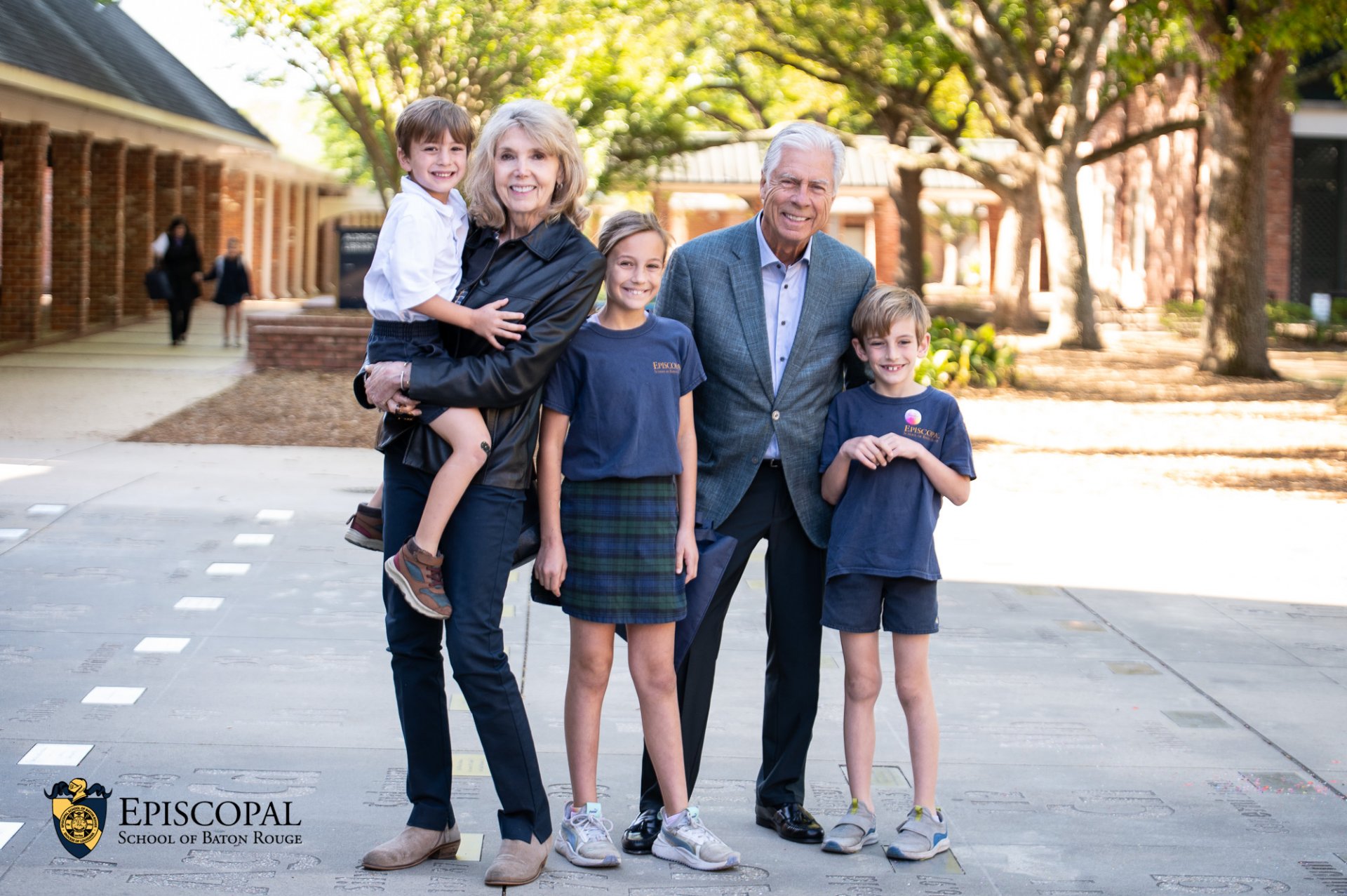 Mar27We Love Our Grandparents and Special Friends!
Mar27We Love Our Grandparents and Special Friends!Everyone was all smiles at the recent Grandparents and Special Friends Day! See photos from this special occasion.
See Details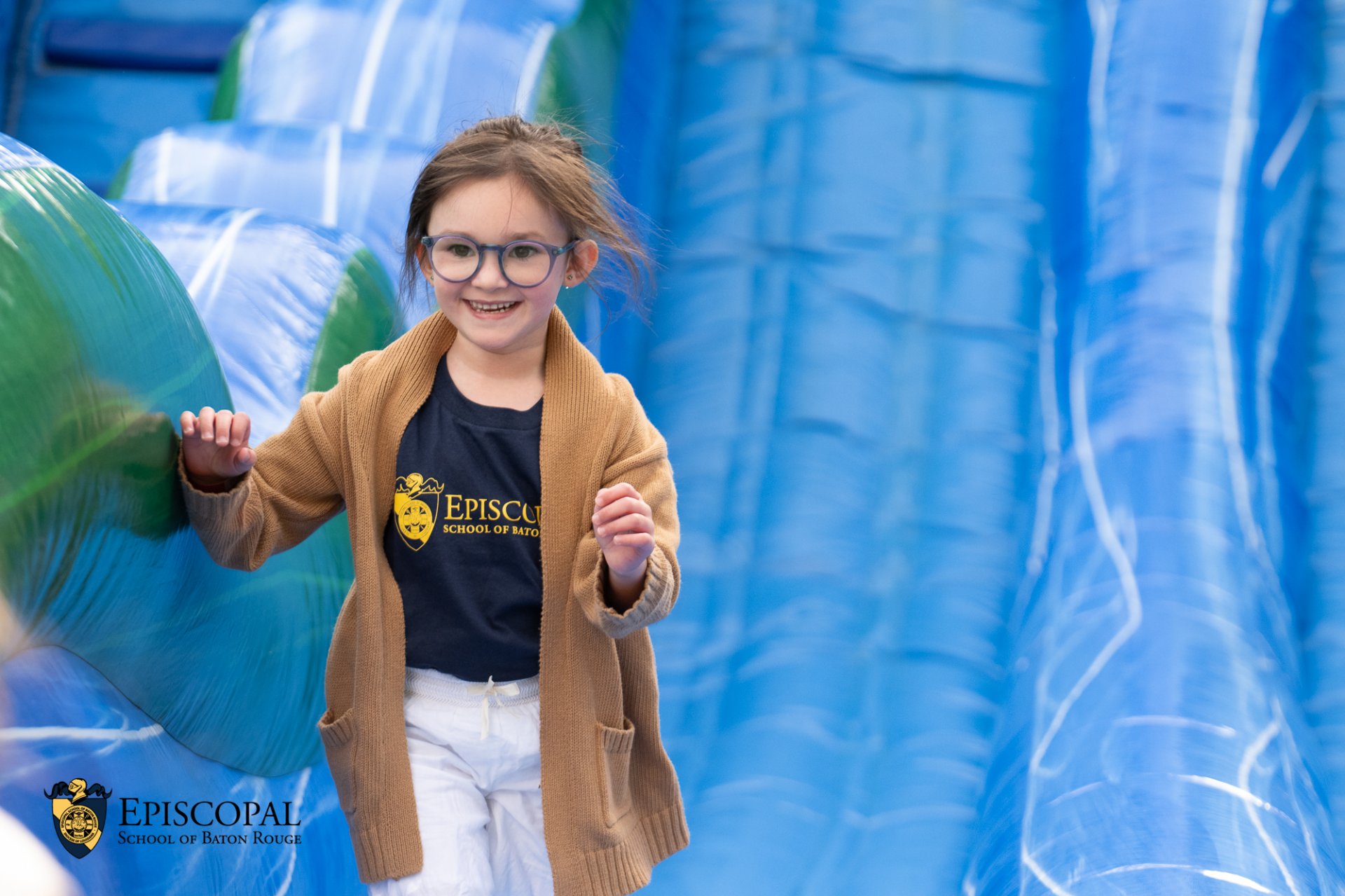 Mar27Spring Festivities are in Bloom!
Mar27Spring Festivities are in Bloom!Springtime at Episcopal means fun and festivities across campus.
See Details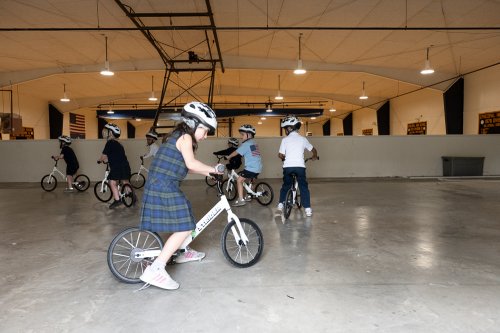 Mar14A New PE Lesson Has Kindergarteners Rolling
Mar14A New PE Lesson Has Kindergarteners RollingKindergarten students are bike riders! Read more about how PE coaches are helping students learn a new life skill.
See Details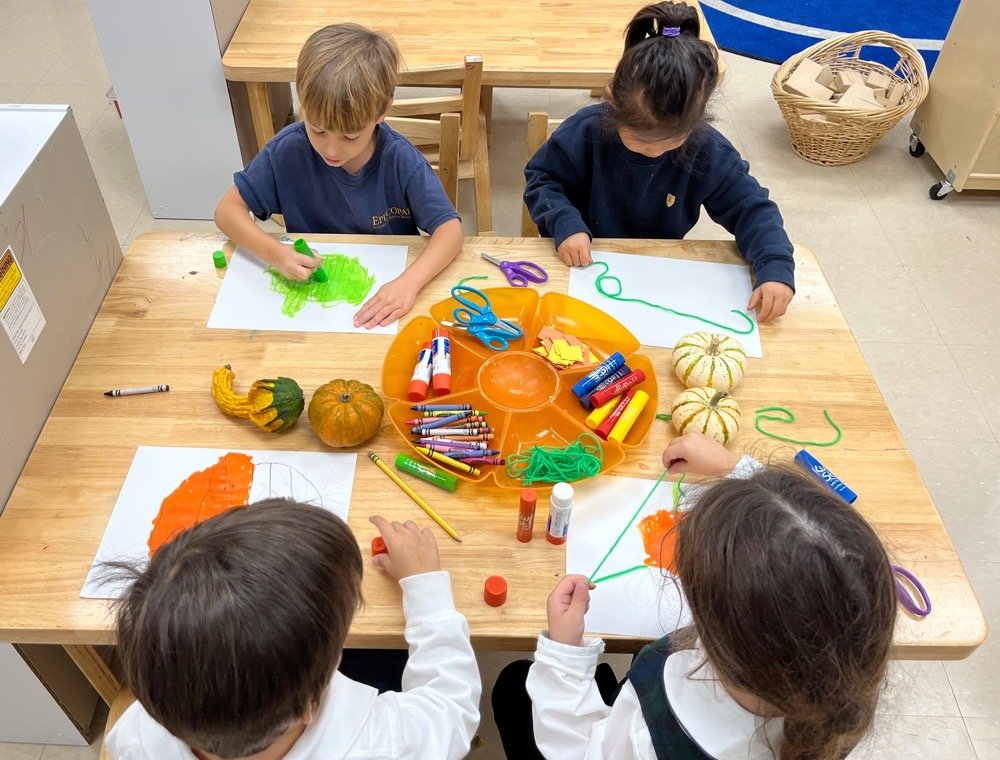 Mar5Nurturing a Love of Reading and Writing in PreK-4
Mar5Nurturing a Love of Reading and Writing in PreK-4Reading and writing in PreK-4 is fun! Teachers Stephanie Ezell and Lindsay Smith share more about helping students development skills that will last a lifetime.
See Details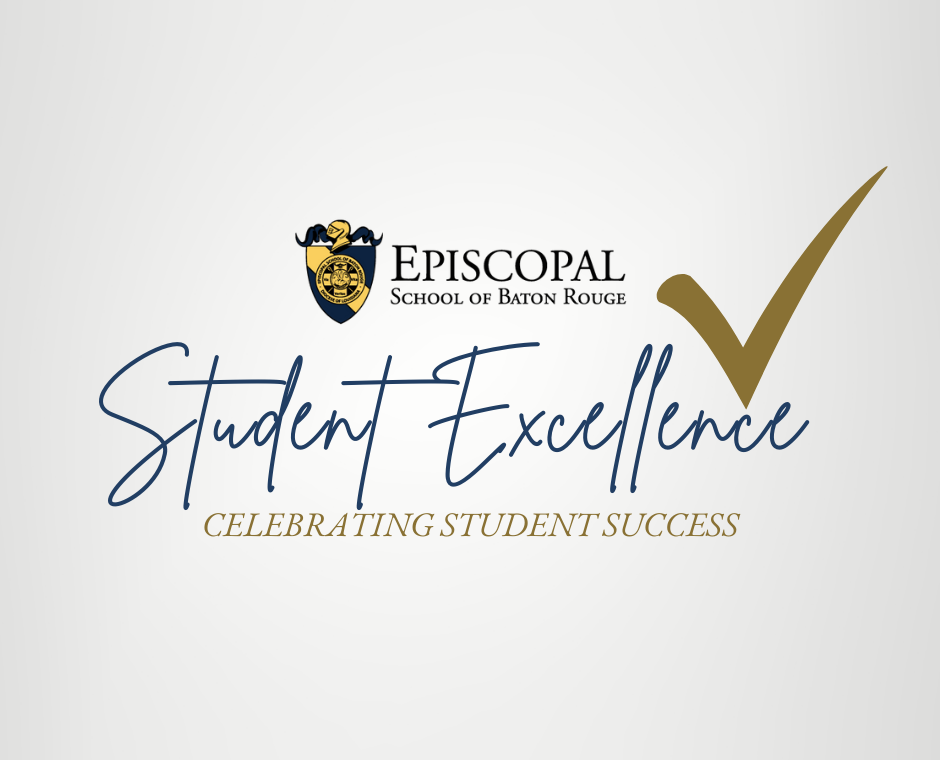 Feb6Celebrating Student Success - February 2024
Feb6Celebrating Student Success - February 2024Episcopal students have much to celebrate. Check out recent success.
See Details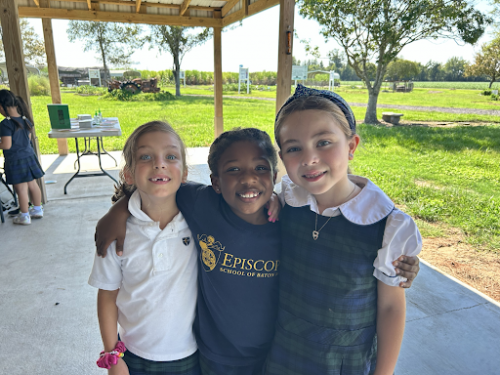 Jan31You Belong!
Jan31You Belong!Lower School Division Head Beth Gardner highlights all the special ways that Lower School celebrates and values belonging.
See Details Jan18Fourth Graders Show Off Creativity and Problem-Solving Skills at Annual Cardboard Arcade
Jan18Fourth Graders Show Off Creativity and Problem-Solving Skills at Annual Cardboard ArcadeChicken Ball, Sky Ball and the Taylor Swift World Tour are just a few of the fun games created by Episcopal fourth graders. Read more and see photos from the annual Fourth Grade Cardboard Arcade.
See Details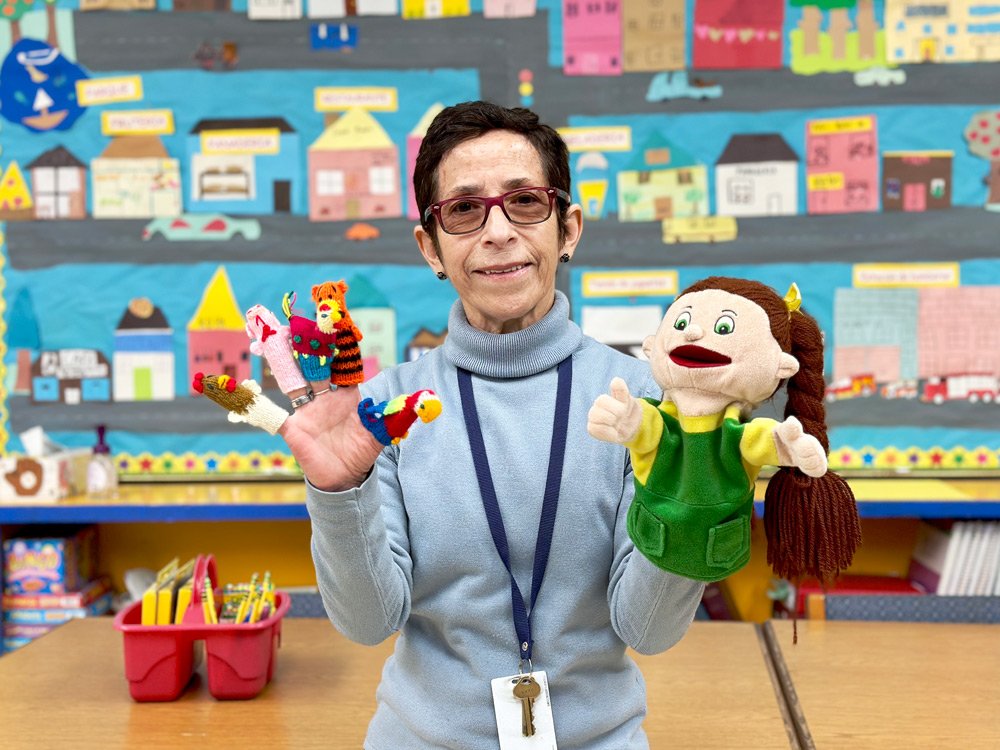 Jan12Early Childhood World Language Lessons Prepare Students Well for Advanced Study and Beyond
Jan12Early Childhood World Language Lessons Prepare Students Well for Advanced Study and BeyondBeginning in PreK-3 and PreK-4, Episcopal students study Spanish and French. Learn more about how students develop these new skills in a fun and engaging way.
See Details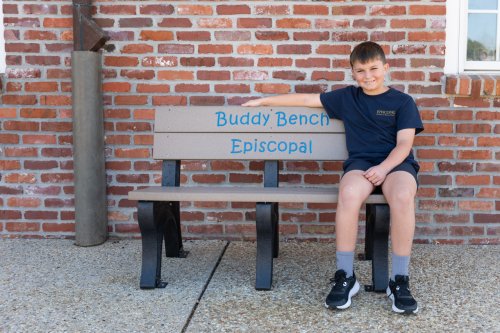 Dec4The Best Recess Ever: Buddy Benches and Social/Emotional Development
Dec4The Best Recess Ever: Buddy Benches and Social/Emotional DevelopmentBuddy Benches empower students and help them develop empathy. Read more about these new additions and social/emotional development in Lower School.
See Details







